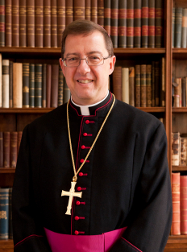Whilst some areas cannot provide enough Catholic places, other schools in different areas provide an education for a much wider group. The diocese of Westminster has made an application to Richmond Council to provide for new Catholic Voluntary Aided (VA) primary and secondary schools to meet need. The British Humanist Association is legally challenging Richmond about the process. The VA system has permitted the Church to cooperate with local authorities and found Catholic schools which could offer 100% Catholic admissions. Will this provision be eroded?
In this changing context, it is important to recall some fundamental principles about Catholic education. Parents are the primary and the principal educators of their children. This responsibility is publicly undertaken at the sacrament of baptism. Catholic parents have a right to choose the education they wish for their children. Our schools exist to assist parents in this responsibility by seeking to provide sufficient places for Catholic children. The Code of Canon Law states that it is important that civil society recognises this freedom and even supports it with public funding (Canon 797).
Catholic schools share in the mission of the Church which is evangelisation. They are called to share in the proclamation of the good news of salvation to all people, generate new persons in Christ through baptism and educate them to live as children of God. The Church establishes her own schools because she considers them as a privileged means of promoting the formation of the whole person. The school is a centre in which the specific concept of the world, of human persons and of history is developed and conveyed. This view must critically engage with other viewpoints and assist students to articulate and live well their faith and values. At the heart of the Catholic school is Jesus Christ who is the Way, the Truth and the Life and who reveals to us through the Scriptures and the Tradition of the Church what it is to be human and to have life in its fullness. The Catholic school is concerned with the education of the whole person and seeks through learning and teaching the development of each child’s unique and God-given gifts so that they can enter the adult world and contribute to the service and good of others. In Canon Law we find the call for excellent schools which should be least as outstanding in academic standards as other schools in the area (Canon 806.2). To be inclusive and attain this criterion is only possible through the generosity and commitment of the staff.
The Catholic school communicates this rich vision through fostering faith, building hope and living love. To know, love and serve Christ will be at the heart of the school’s project. The school community will be built upon love and is concerned for the good of each and every member. Many of our schools are communities that go the extra mile and offer forgiveness and compassion generously. The witness of dedicated staff supports this vision and hands on faith. The service of others, especially the poor and vulnerable, will also characterise a school through which students learn about solidarity and commitment to the needy. This life will be celebrated in liturgy and especially the Mass.
The Catholic school is a sacramental presence in the local area. Many will be attracted to such an iconic place. We are reminded to spare no sacrifice in helping Catholic schools fulfil their function in a continually more perfect way, and especially in caring for the needs of those who are poor in the goods of this world or who are deprived of the assistance and affection of a family or who are strangers to the gift of Faith (Vatican II Gravissimum educationis (1965) 9.)
As Pope Benedict reminded us at Strawberry Hill on his recent visit, “A good school provides a rounded education for the whole person. And a good Catholic school, over and above this, should help all its students to become saints.”


